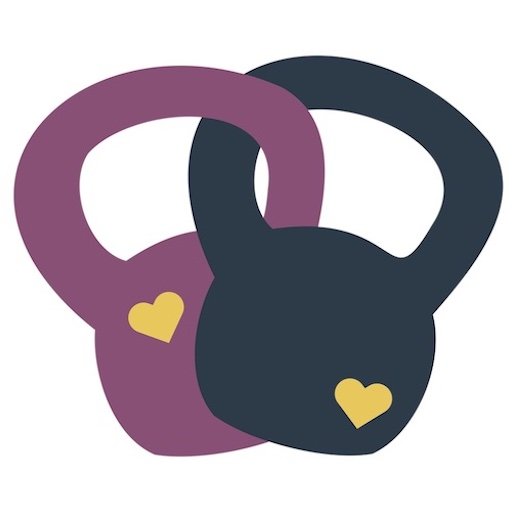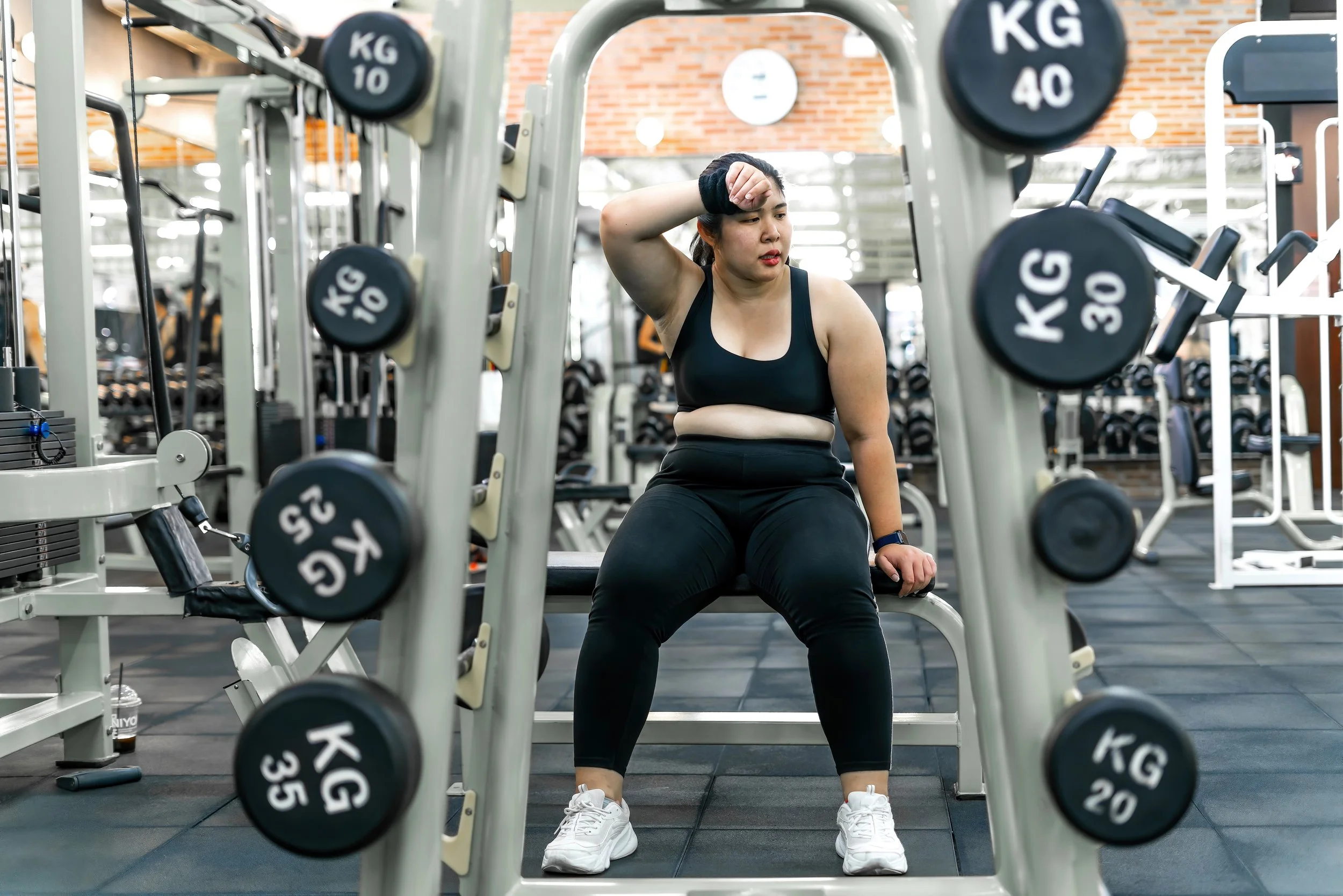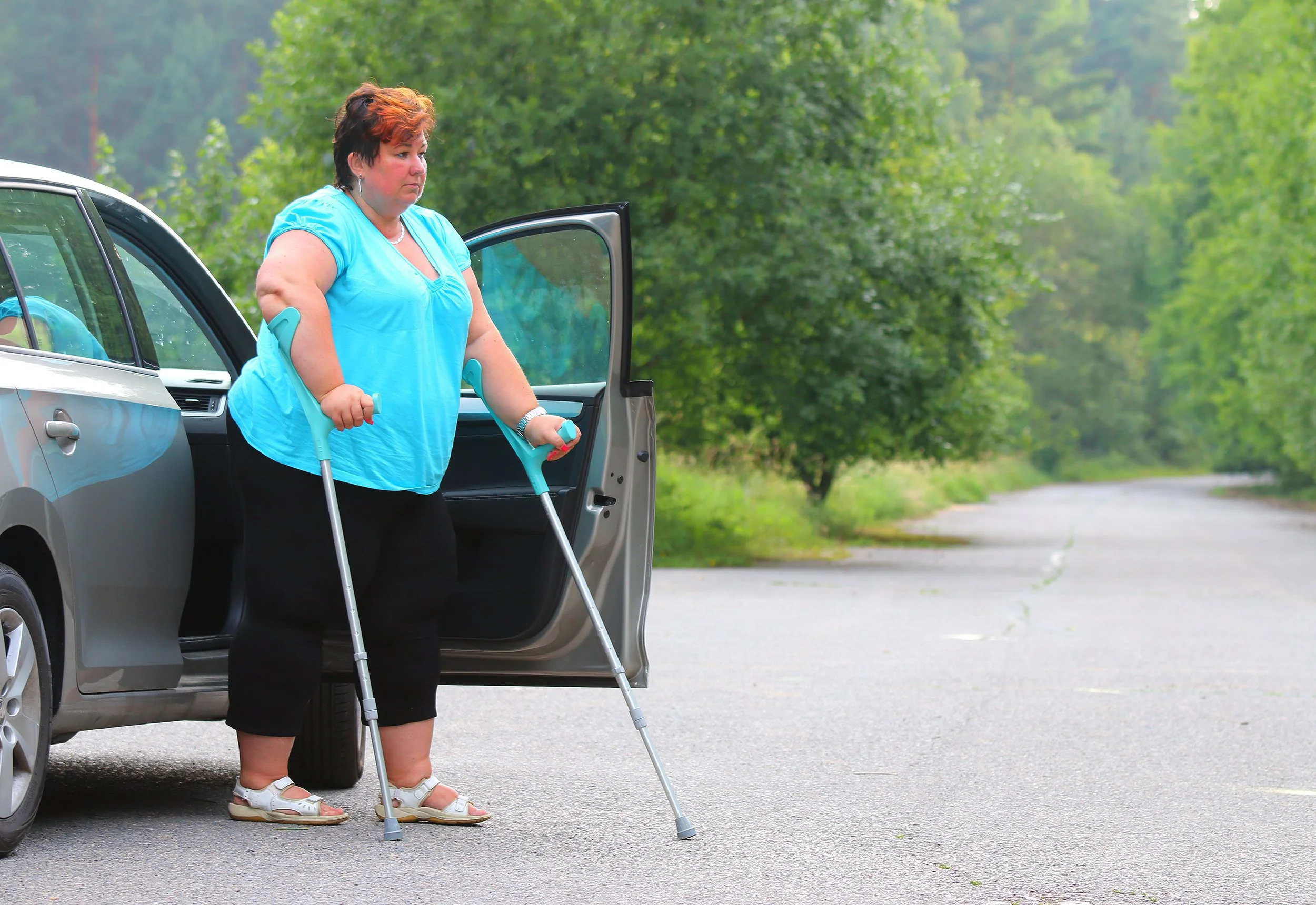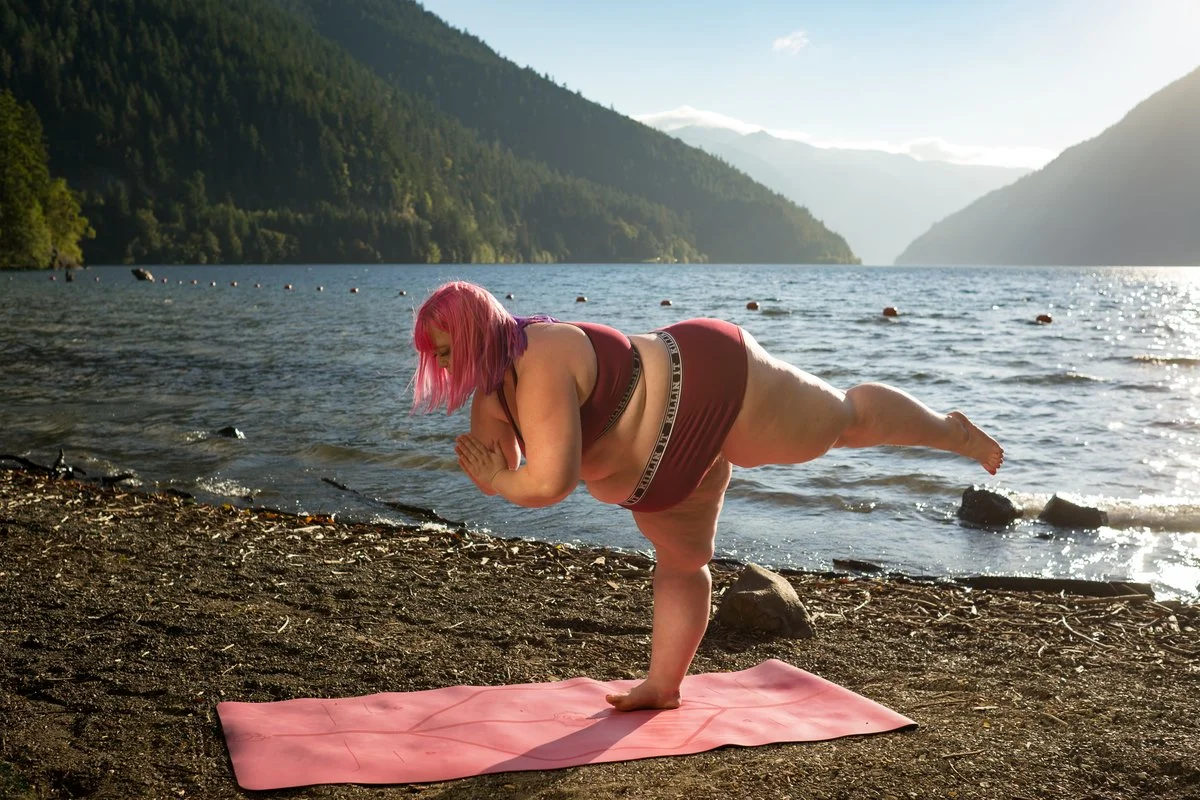Why it’s hard to listen to your body when you’re fat (podcast summary)
By Angel Austin
We face so many challenges when we try to listen to our bodies, especially when living in a society where our fat bodies are constantly judged. It’s important to shed light on the pressures we face, as well as the fatphobia and ableism we often internalize. It’s not our fault. It’s hard to navigate the struggle of dealing with our own lived experiences with the expectations put on us by society. It’s a constant battle.
Cultural norms and standards affect the way we move through the world. Very often, this influence even spills over into fat liberation, a space many of us consider “safe”. We must make room to have open dialogue within the fat community to reclaim movement for people of all sizes. We have to challenge ways “fitness” is defined and make the shift towards understanding and accepting everyone’s individual needs rather than conforming to society’s expectations of who movement is for.
Larger people often grow up feeling like our bodies are everyone else's concern. We begin to lose any sense of autonomy, especially when it comes to our thoughts and feelings. Family dynamics and the trauma that often comes with them come into play, and the criticism we experienced during childhood via our families and community, intensifies into adulthood, (especially now with the pervasiveness of social media).
There's also this harmful overlap where a person's body size becomes intertwined with our morality, perpetuating the notion that being fat is a personal failure. For example, a person using a motorized cart in a store is often stared at or even verbally ridiculed. Non-fat people use these situations to shape their perceptions and opinions about fat peoples’ choices and lifestyle. While this is happening, we’re STILL wrestling with our own internalized ableism and fatphobia. It's a lifelong battle.
This is why people in larger bodies often turn to dissociation and the need for other coping mechanisms. These are survival strategies that allow us to navigate the world without being overwhelmed. Sometimes, we hide behind a facade of strength, pushing on despite the emotional toll. This is not always “healthy” but it's often necessary. That's said, it's important to consider the possibility that dissociation is not inherently negative.
Compartmentalization can be a helpful way to move through difficulty. The concept of a "bag of dissociation" – a metaphorical tote bag where we sift through various coping methods to find what serves us best – is important to consider.
Movement is a powerful tool for changing one's mindset and fostering body connection that feels right and supports our mental and emotional health. It can help us move beyond “survival mode” and the need to dissociate, begin to use movement as an impactful form of self-care, and help us take a more intuitive and liberated approach to eating in a way that works for our bodies.
We can also challenge unnecessary rules while maintaining boundaries for our personal safety. We can confront and dismantle ingrained societal norms that have caused us to retreat. We can rebel and reclaim movement as our birthright.
We can question common assumptions like the myth that eating after 8 p.m. is “unhealthy” and explore the actual impact of daylight hours on health in different time zones. We can assert our autonomy to make decisions based on personal experiences and challenge the “one-size-fits-all” solutions. The concept of “health” is subjective and complex. Quantifiable data may not always dictate individual choices.
We are experts of our own bodies. We really do know what we need. Reclaiming movement and releasing the ideas that have kept us oppressed and feeling “stuck” are amazing ways to help us begin to realize this.



